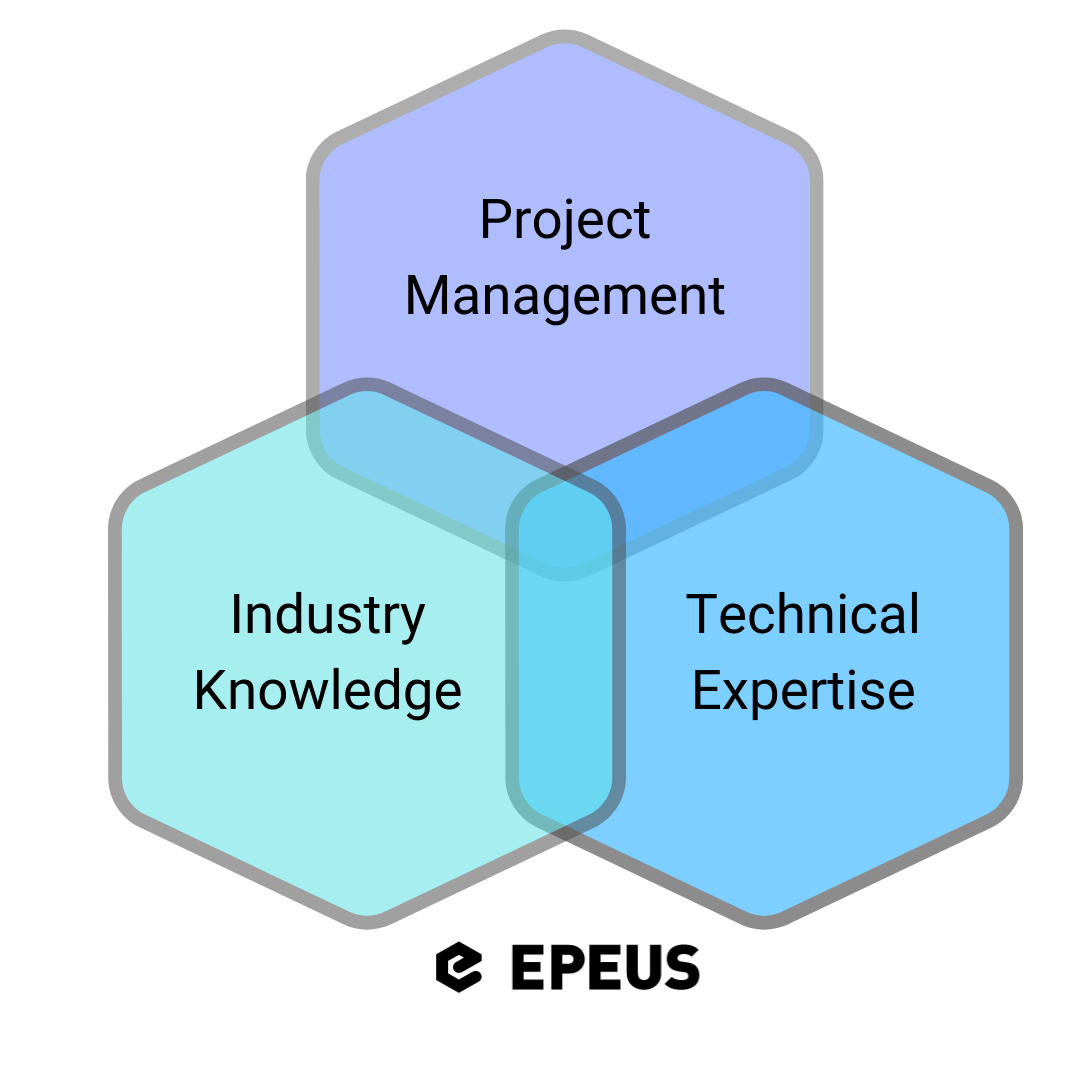
Mixing the perfect cocktail of expertise
The scale of the challenge of moving away from carbon-emitting energy requires many new large complex feats of engineering, delivered faster and more reliably than ever. But fossil-free projects can learn a lot from those they’re trying to supplant.
Most ordinary folk view carbon-emitting energy and fossil-free alternatives as chalk and cheese. So do politicians. At the project level, though, similarities are everywhere. We’ve found that project success requires three elements: skills in project management, technical expertise, and industry knowledge. But like a good vodka martini, the parts are not equal.
Business leaders, and project leaders, tend to have too narrow a definition of technical expertise, biased towards their own experience. Academics, on the other hand, tend to play down the differences. Likewise, international standards reveal few differences between industries. And, in their ‘Body of Knowledge’ publications, professional associations don’t make the distinction either. In their minds a project is a project is a project. Period.
Our view is slightly more nuanced. We used to treat our own ‘industry’ quite narrowly, promoting ourselves as ‘the drilling rig experts’. Now it’s clearer than ever that ‘project management’ and ‘technical’ expertise can cross multiple sectors of the broader energy ‘industry’.
Similarities beat differences
Harnessing geothermal energy requires drilling high-temperature and high-pressure wells in very similar ways as for oil and gas exploration and production. Offshore wind projects need almost the exact same project services as an offshore oil and gas field development project, such as subsea infrastructure, platform-based processing, heavy lift barges, drilling rigs, subsurface and geotechnics, and jacket fabrication.
The marine construction supply chain brings its valuable knowledge of installing oil and gas infrastructure on the seabed to offshore wind projects. And far-flung shipyards bring their knowledge of building drilling rigs and other specialty oil and gas vessels to the construction of moored platforms for floating offshore wind.
Moreover, carbon sequestration projects look to utilize already-in-place oil and gas infrastructure. If it’s not available, they need very similar new infrastructure. Indeed, the construction of industrial-scale CHP plants in the biomass energy sphere are remarkably like any large process module or facility.
Of course, technical knowledge of plant operation, equipment and technology will be different. But how it’s all assembled and approached, managed, and controlled is staggeringly similar. As are the forces in play affecting whether a project will, or even can, be successfully delivered or not. During construction for example, it’s all pipes, ducting, electric cables, and structural work, irrespective of the industry. And let’s not forget the full collection of life-sized ‘Tonka toys’ required to put it all together, on land or at sea.
Sector knowledge is, of course, useful. But when demanded as a prerequisite, rather than something merely desirable, it excludes the sharing of useful ideas—especially when someone else has already invented the wheel you need.
Every project has something different about it, otherwise it wouldn’t be a project. The trick is to take general project fundamentals and creatively apply them to the uniqueness of your own specific undertaking. Developing a one-size-fits-all corporate system offers some robustness but rarely gets projects consistently over the line. And when the heat is on to deliver, bloated centralized systems can become a barrier to success.
Embrace the expertise you need
On large complex projects, teams compete against time and uncertainty. Which is why we advise our clients to broaden their definition of domain (technical) expertise and reap the benefits from other sectors where what they’re trying to do is already standardized. Embracing the project management expertise available across sectors confers an advantage. Cross-sector knowledge, for example, is already helping overcome the same geographical and geological challenges.
A broad and deep view of the risks—benchmarking your own expectations and assumptions against outcomes of other similar projects—helps to combat bias. Building flexibility into your approach will help deal with unknowns and inevitable curveballs as activity picks up. That cocktail of expertise (PM, technical, industry) should leave your investors stirred, not shaken.
We’ve been making the transition ourselves and happily help players on both sides of the carbon divide safely and reliably manage their project outcomes to secure their profits and their reputation.
________________________________
Can we help you?
Our Foresight and Oversight services are designed to help you deliver project success, even if the process is sometimes uncomfortable.
For a clearer view on your project’s challenge level and your team’s capability, try our self-appraisal software: Project Horizons
________________________________


